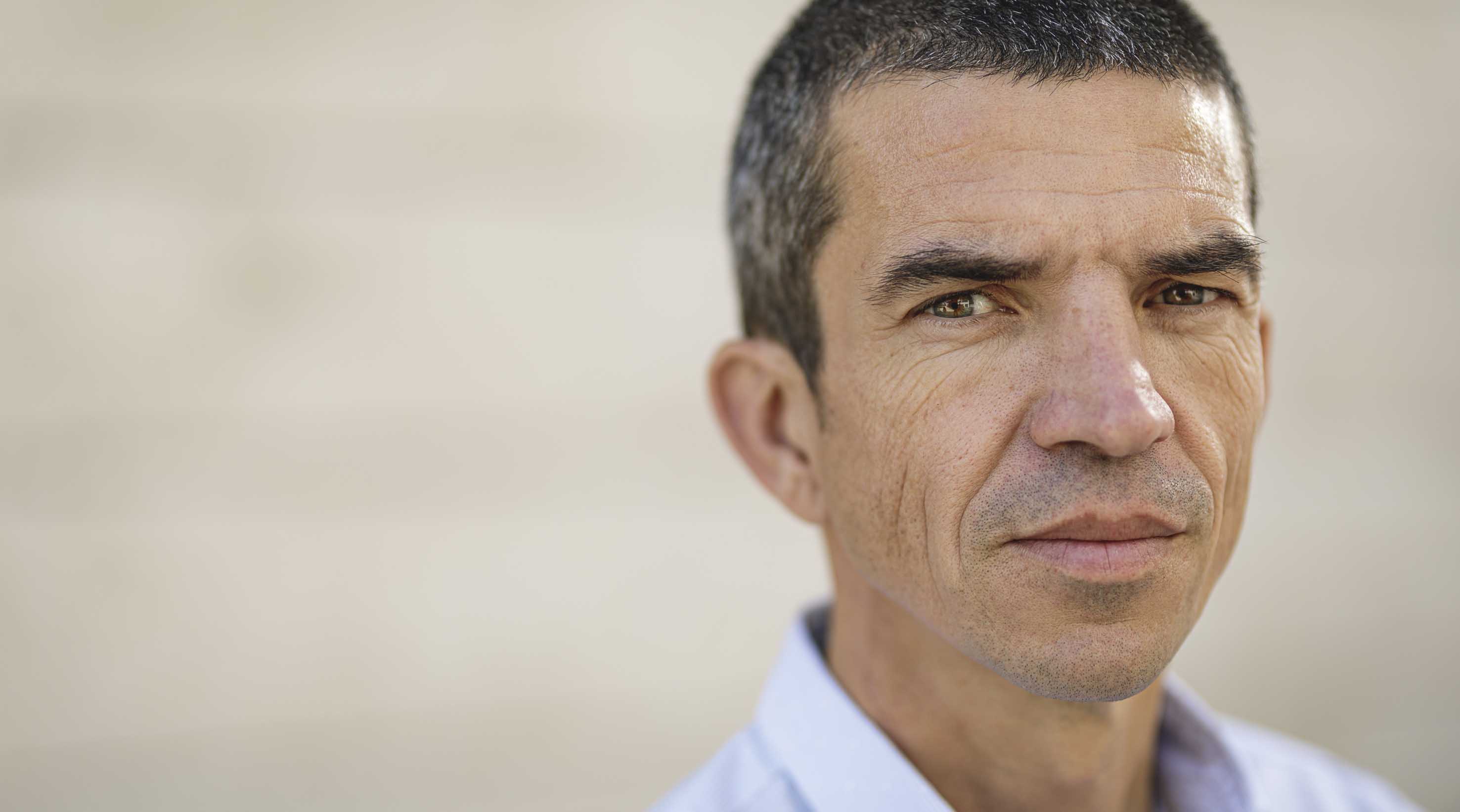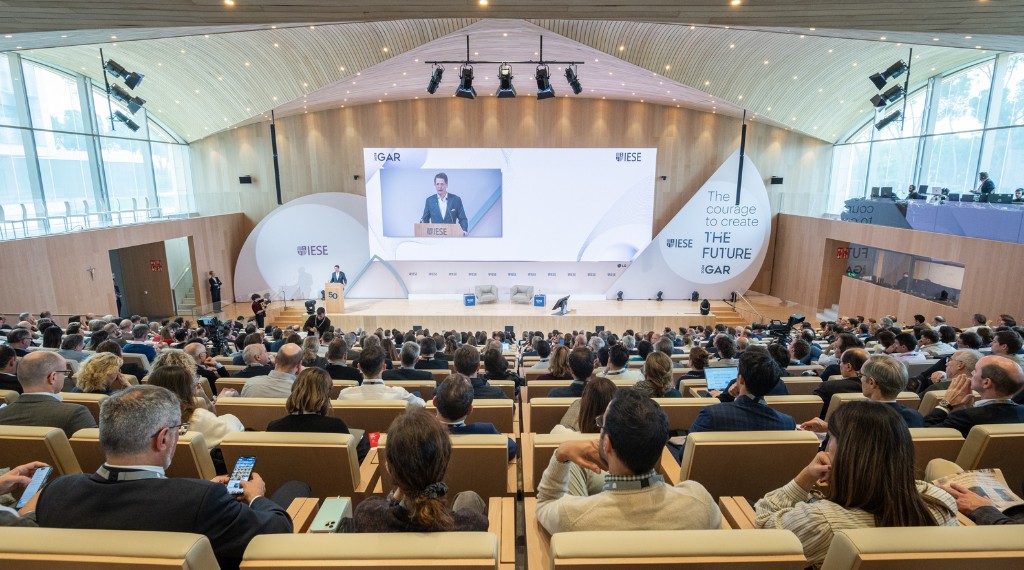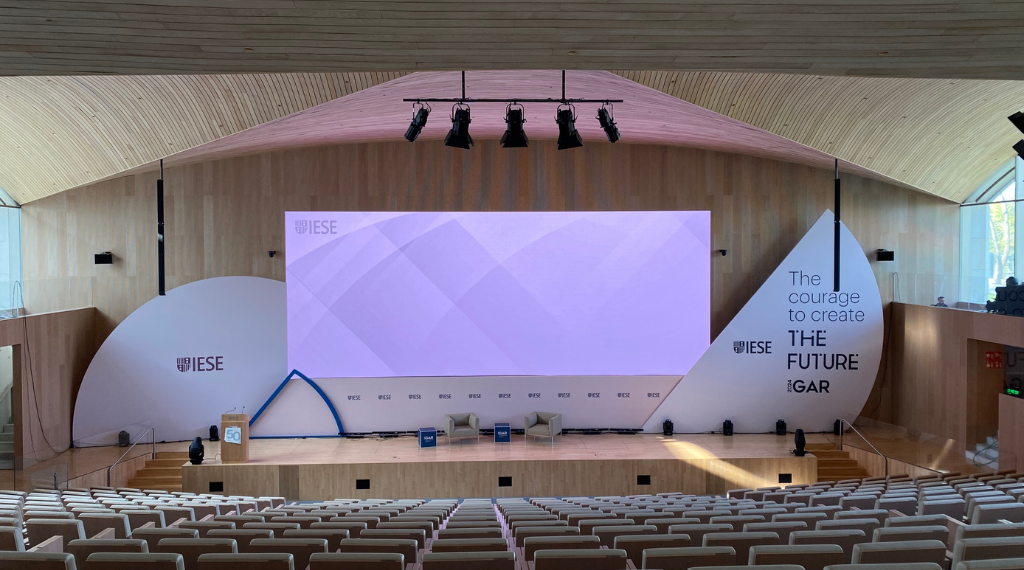
Stories
“Success can be measured by how much you learned”
Luis Pallares’ company, Plyzer Technologies, aims to put AI at the service of decision-makers
From running the North Pole Marathon to starting a transatlantic tech company, Luis Pallares (AMP ’19) likes to push the boundaries.
PHOTO: QUIM ROSER
December 11, 2019
Just a few months after formally setting up his company, Plyzer Technologies, in 2016, Barcelona-born Luis Pallares (AMP ’19) managed to get it listed in the United States — thanks to an agreement with a Canadian colleague who controlled a company looking for a radically new direction. Since then, having managed to secure €4 million in startup financing from both sides of the Atlantic, Pallares, as the new company’s founder and CEO, has been dividing his time between Barcelona (where his team works) and Toronto (the official headquarters). It’s not the conventional route to go, but then, little that Pallares has done in his life and career has been conventional. He is an entrepreneur who frequently pushes the boundaries.
By his own admission, Pallares, while bright, was not a model student. When he got expelled from high school in Barcelona, his mother sent him to finish his studies in the United States. He did better there, making it into the Massachusetts Institute of Technology (MIT) — but halfway through his computer science degree, he dropped out.
This doesn’t mean he isn’t educated — far from it. For him, “there’s nothing more important — only education allows you to understand what’s happening in the world.” Indeed, he has since gone back and done various other programs at MIT and recently completed the Advanced Management Program (AMP) at IESE.
Focus on your goal and embrace the effort that must go into achieving it
He’s a prolific reader, devouring at least five periodicals a day and subscribing to more than 10 business, economics and tech magazines. He maintains close ties with tech labs and universities. Above all, he loves “listening to other people, learning from their experiences and points of view.” This is key, he says, to his ability to identify new, underexplored opportunities. He says the book, Lifelong Kindergarten: Cultivating Creativity through Projects, Passion, Peers and Play, sums up his philosophy of life.
Vive la différence
Back in the late ’90s, Pallares set up the first digital radio in Spain. He tried — and failed — to push streaming and podcasting, which at the time was a nascent field. No matter: the experience taught him that sometimes innovation leads to failure.
“When you enter a field with no competitors, you probably arrived too early,” he reflects. Now, he approaches his innovation challenges this way: “Instead of always trying to be the first to do something, it’s much better to be the first to do something differently.”
This is what he has done with Plyzer Technologies. The company has developed proprietary software that uses artificial intelligence (AI) and machine learning to monitor the prices of online products and deliver all sorts of real-time information and market trends on pricing, delivery and other important data useful for product managers, advertisers, corporate customers and consumers.
Although business intelligence has been around for ages, “many of these tools have a very steep learning curve and can take up endless hours of your time. They’re designed for technicians, not for those who make day-to-day decisions. I’ve tried to simplify the process,” he explains.
I try to make sure that anyone who has a dream can fulfill it
And in simplification lies the difference. “Whenever I failed to explain a project in the simplest of terms, it usually flopped.” His new litmus test: “If a five-year-old can understand your business, then it probably has a chance at succeeding.”
Yet even the flops hold value. “It’s great if you make money but, for me, success can also be measured by how much you learned. There are two parts to success: first, having an idea and executing it; and then, when it’s done well and it’s working, selling the business. That first part has a lot of value, because just having an idea and executing it is an achievement to be proud of, in and of itself. That, too, is success.”
Worth the effort
In 2010, Pallares experienced another sort of success when he ran the North Pole Marathon. As if running a regular marathon weren’t enough of an endurance test, he had the added risk of hypothermia and spatial disorientation from the blizzard-like conditions. “There were times when I couldn’t see anything around me and I thought I was lost. My body was shaking for two hours after I crossed the finish line.”
The key to not giving up, he says, is to “focus on your goal and embrace the effort that must go into achieving it.” He kept that same attitude when he was diagnosed with cancer two years ago. And he puts things into perspective: “No matter what I’m going through, I always consider myself lucky. There’s always someone worse off, so I can’t complain.”
That grateful spirit has made him want to give back to society. “I want to create companies that help others — and not just by creating jobs. For example, I’d like to provide more AI tools for the healthcare sector. My wife (a former professional rower) and I are creating a rowing foundation to help people with limited means who are suffering from an illness to overcome it through sport.”
Fulfilling dreams
As someone who is pursuing his own dreams, Pallares wants to create workplaces where others can pursue theirs. In running a transatlantic tech company, he is vying for talent against big players like Google, Apple and Facebook. To attract top talent, he builds on employee networks and tries to offer something different, to foster a climate where people will want to work. “I try to make sure that anyone who has a dream can fulfill it with us. Some employees, like me, have other things going on in their lives but few opportunities to pursue them. I encourage employees to explore their ideas and see how they might fit with our strategy, with a view to possibly implementing them and even creating spin-offs.”
The company also hires PhD candidates, giving them the necessary resources to investigate common areas of interest. “We make it possible for them to make as many mistakes as they need to, in order to get their articles published in academic journals, so that in two, three or four years’ time, they can apply to the best universities in the world. This, in turn, allows us to maintain good relations with those institutions, thus creating a virtuous circle.”
A version of this article is published in IESE Business School Insight #154.
Pallares ran in “the coolest marathon on earth”
– Distance: 42.195 km/26.2 miles
– Temperature: -25 C /-13 F
– Conditions: winds of up to 60 kph/37 mph
– Finishing position: 5th
– Time: 6:21:15



